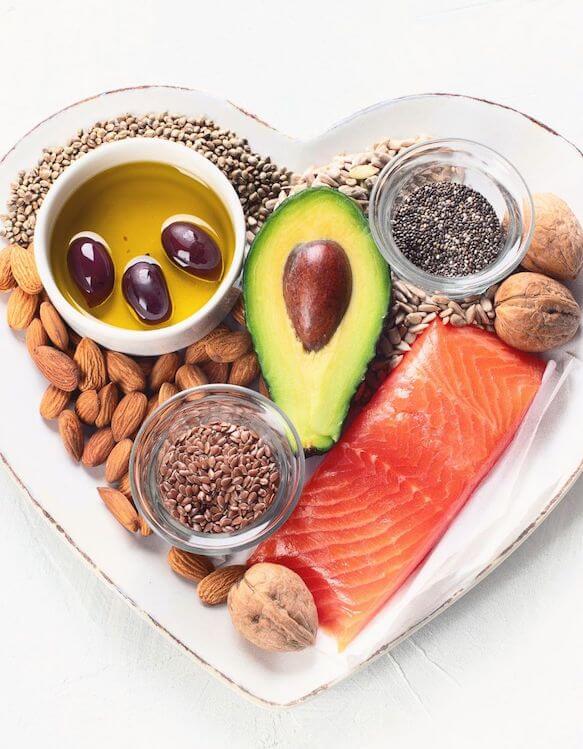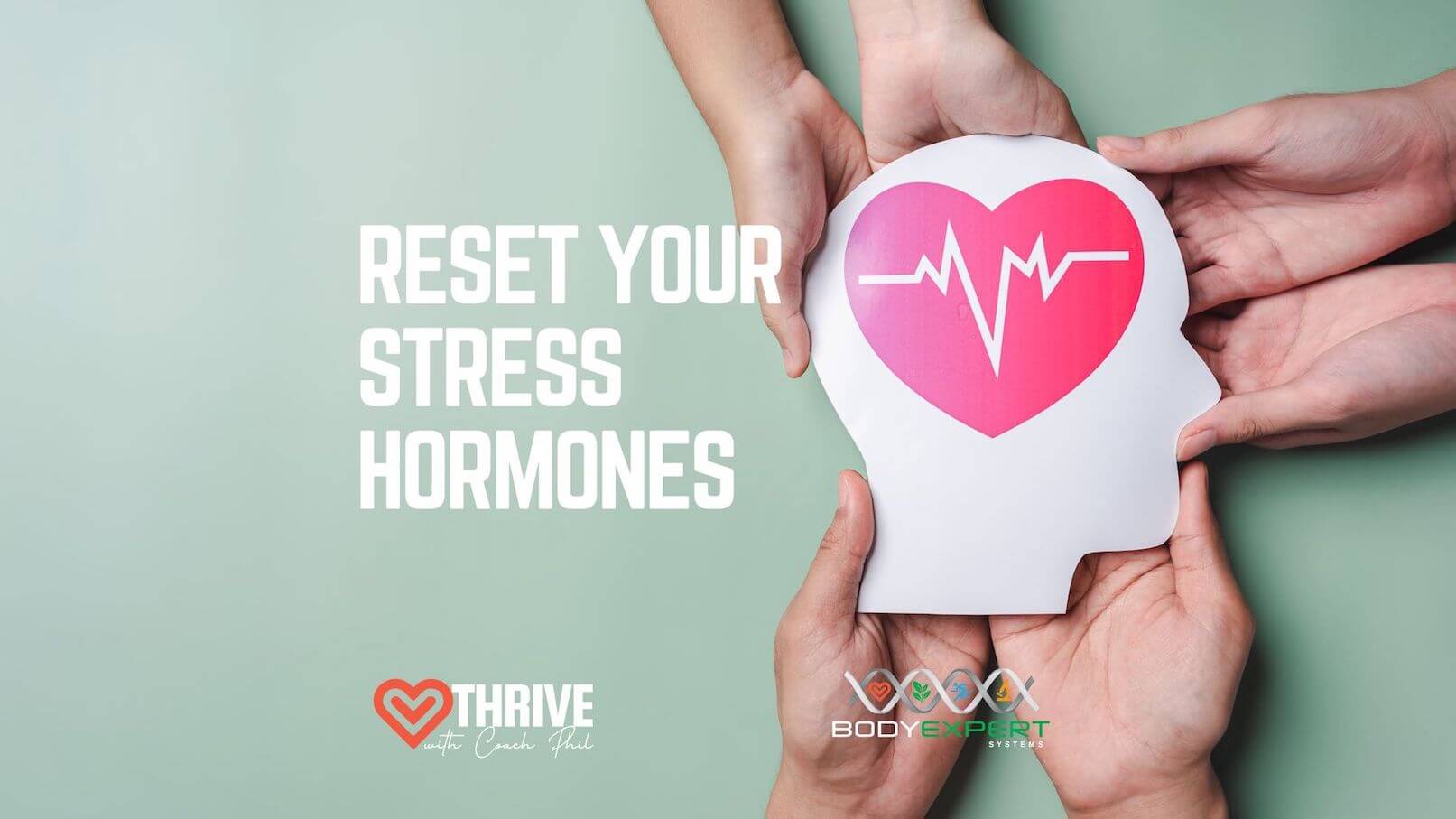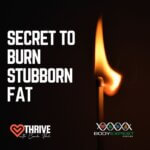Cortisol affects your energy, fat loss, and brain health. You crave sugar late at night. You wake up tired. You’re doing the workouts and eating the right foods, yet that belly fat won’t budge.
Struggling with low energy, brain fog, or stubborn belly fat? You might be overlooking a key player: cortisol. This powerful stress hormone impacts more than just your mood – it affects how you burn fat, how clearly you think, and how well you perform every day
It’s not just your willpower. It might be your hormones.
In this article, we explore how cortisol affects your energy, fat loss, and brain health, why it often stays high for too long, and what you can do to reset your system and feel your best again… especially in the high-pressure pace of Ho Chi Minh City.

What is Cortisol?
Cortisol is a hormone your body produces in response to stress. It comes from your adrenal glands, located on top of your kidneys.
When your brain perceives a threat (real or imagined), cortisol kicks in. It raises your heart rate, boosts blood sugar, and primes your body for action – a survival mechanism known as the “fight or flight” response. But in today’s world, our stressors aren’t lions or life-threatening situations. It’s Zoom meetings, traffic, deadlines, skipped meals, late nights, and constant phone notifications. Your brain can’t tell the difference, so cortisol (stress) stays elevated far longer than it should.

What Does Cortisol Do?
In short bursts, cortisol is helpful. But chronic high cortisol can wear your body down.
Cortisol can:
- Raise blood sugar
- Tell your body to store belly fat
- Increase cravings for sugar and salty foods
- Disrupt sleep patterns
- Slow digestion and recovery
- Break down muscle tissue for fuel
The result? You feel drained, hold fat around your midsection, struggle to recover, and rely more on caffeine or sugar to get through the day.
Signs Your Cortisol Might Be High
You don’t need a blood test to spot chronic stress. Watch for:
- Waking tired despite a full night’s sleep – High cortisol at night can suppress melatonin, leading to shallow or disrupted sleep cycles. According to a study in Sleep Health (2016), poor sleep quality is closely linked to elevated evening cortisol levels.
- Wired or restless at night – Cortisol is meant to be highest in the morning and lowest at night. When it spikes in the evening, it interferes with your ability to relax and fall asleep, leaving you mentally wired when you should be winding down.
- Increased belly fat – Cortisol activates fat storage enzymes, especially in the abdominal region. Research by Epel et al. (2000) showed women with higher cortisol stored more visceral fat, independent of overall weight.
- Mood swings or emotional lows – Chronic stress depletes neurotransmitters like serotonin and dopamine. Elevated cortisol is associated with reduced hippocampal volume and emotional regulation, according to findings in Biological Psychiatry (2007).
- Sugar and caffeine cravings – When cortisol is elevated, blood sugar becomes unstable, creating more cravings for quick energy sources. Stress also impacts insulin sensitivity, increasing your body’s demand for glucose.
- Poor workout recovery – High cortisol breaks down muscle tissue and delays repair. A 2008 review in Sports Medicine noted that prolonged cortisol elevation impairs muscle protein synthesis and increases inflammation post-exercise.
- Constant anxious or overstimulated feelings – When cortisol remains high, the nervous system stays in a sympathetic “on” state. This can lead to chronic anxiety, restlessness, and a feeling of being stuck in overdrive (Journal of Affective Disorders, 2011).

The Cortisol-Fat Connection
Cortisol alone doesn’t cause fat gain. But it sets the perfect conditions for it:
- More hunger (especially for junk food)
- Less sleep, which raises hunger hormones
- Muscle breakdown, which slows metabolism
- More fat stored around the belly
This is why stress management is fat loss strategy. Research links elevated cortisol and abdominal fat with increased risk for heart disease, diabetes, and brain fog
How to Lower Cortisol Naturally
You don’t need to disappear into the mountains. You need to show your body it’s safe:
- Breathe Before Meals – 5 slow breaths before eating calms your nervous system and improves digestion.
- Get Morning Sunlight – Reset your cortisol rhythm by getting natural light within an hour of waking.
- Walk After Meals – Lowers blood sugar and cortisol while aiding digestion.
- Strength Train – Build muscle and lower stress without overloading cardio.
- Cut Night Screen Time – Blue light disrupts melatonin and elevates stress hormones. Power down 30 mins before bed.


What to Eat to Support Healthy Cortisol
Food is your ally in stress management:
- Magnesium-rich foods (spinach, pumpkin seeds, avocado)
- Omega-3s (salmon, chia seeds, walnuts)
- Protein to stabilise blood sugar
- B vitamins (whole grains, legumes) for energy and brain support
- Most importantly: stop skipping meals. Skipped meals = blood sugar crashes = cortisol spikes.
Why Cortisol Matters More Than You Think
Cortisol isn’t inherently bad – it’s actually essential for life. It helps you wake up, focus, stay alert, and respond quickly to pressure. In the right rhythm, it acts like your body’s internal caffeine: keeping you sharp and responsive during the day.
But when cortisol stays high for too long, it becomes a roadblock to progress… sabotaging everything from your sleep to your metabolism.
Balancing cortisol helps your body:
- Burn fat – Chronically high cortisol leads to insulin resistance and fat storage, particularly around the belly. By restoring hormonal balance, your body can shift back into fat-burning mode. (Rosmond et al., 2000)
- Sleep deeply – Healthy cortisol levels peak in the morning and drop in the evening. When this rhythm is off, your body struggles to produce melatonin, making it harder to fall into deep, restorative sleep. Research published in Frontiers in Endocrinology (2019) shows disrupted cortisol patterns are associated with insomnia and poor sleep quality.
- Build muscle – Cortisol in excess breaks down muscle tissue for energy. Strength training while chronically stressed can backfire without hormonal support. A study in The Journal of Strength and Conditioning Research (2009) found that cortisol levels directly affect the body’s ability to build lean mass.
- Regulate mood – High cortisol suppresses serotonin and dopamine, impacting your resilience and emotional state. It’s strongly associated with anxiety, depression, and cognitive decline. A 2011 meta-analysis in Psychoneuroendocrinology confirmed elevated cortisol correlates with reduced mood regulation and memory performance.
- Recover faster – Without cortisol regulation, inflammation stays elevated, delaying recovery and immune function. Athletes and high performers with poor cortisol control often experience overtraining symptoms, fatigue, and frequent illness.
Learning to manage cortisol isn’t just stress relief… it’s a full-body optimisation strategy. It allows high-performing professionals in Ho Chi Minh City and beyond to stay lean, clear-headed, productive, and biologically younger for longer.
Key Takeaways:
- Cortisol is your stress hormone. Too much = fat storage, fatigue, poor sleep.
- You can lower cortisol through small daily habits like breathing, walking, sunlight, and strength training.
- Regular meals and calming foods help regulate your stress response.
- Managing stress isn’t just mental – it’s metabolic.
Join us at THRIVE Saigon or Club THRIVE Online to get the expert support, brain training, and recovery tools to reclaim your energy, focus, and performance.
Whether your based in Saigon or anywhere worldwide – we’ve got you.
Connect with us:
We are here to help you make the best choices to #LIVEBETTER and THRIVE. Improve your quality of live by developing boundless energy, upgrading your brain, optimising your body and defy aging… for more information checkout our THRIVE Saigon Memberships – click here!
If you’re not in Saigon / Ho Chi Minh City, Vietnam but would still like us to help you improve your quality of life and live better GET IN TOUCH WITH US NOW or checkout our award winning Online Coaching Service: CLUB THRIVE.
For more great information, inspiration and tips on all things health, fat loss, longevity follow me on Instagram @THRIVEwithPhil
Sources and Further Read:
- Epel, E. et al. (2000). Stress and body shape: Stress-induced cortisol secretion is consistently greater among women with central fat. Obesity Research, 8(6), 505–511. https://pubmed.ncbi.nlm.nih.gov/11020091/
- Ma, X. et al. (2017). The effect of diaphragmatic breathing on attention, negative affect, and stress in healthy adults. Frontiers in Psychology. https://pubmed.ncbi.nlm.nih.gov/28626434/
- Zouhal, H. et al. (2008). Catecholamines and the effects of exercise, training and gender. Sports Medicine, 38(5), 401–423. https://pubmed.ncbi.nlm.nih.gov/18416594/
- O’Byrne NA, Yuen F, Butt WZ, Liu PY. Sleep and Circadian Regulation of Cortisol: A Short Review. Curr Opin Endocr Metab Res. 2021 Jun;18:178-186. doi: 10.1016/j.coemr.2021.03.011. Epub 2021 May 5. PMID: 35128146; PMCID: PMC8813037. https://pmc.ncbi.nlm.nih.gov/articles/PMC8813037/
- Sinha R, Gu P, Hart R, Guarnaccia JB. Food craving, cortisol and ghrelin responses in modeling highly palatable snack intake in the laboratory. Physiol Behav. 2019 Sep 1;208:112563. doi: 10.1016/j.physbeh.2019.112563. Epub 2019 May 27. PMID: 31145919; PMCID: PMC6620125. https://pubmed.ncbi.nlm.nih.gov/31145919/
- Velasco-Orjuela GP, Domínguez-Sanchéz MA, Hernández E, Correa-Bautista JE, Triana-Reina HR, García-Hermoso A, Peña-Ibagon JC, Izquierdo M, Cadore EL, Hackney AC, Ramírez-Vélez R. Acute effects of high-intensity interval, resistance or combined exercise protocols on testosterone – cortisol responses in inactive overweight individuals. Physiol Behav. 2018 Oct 1;194:401-409. doi: 10.1016/j.physbeh.2018.06.034. Epub 2018 Jun 22. PMID: 29940266. https://pubmed.ncbi.nlm.nih.gov/29940266/
- Scheer FA, Buijs RM. Light affects morning salivary cortisol in humans. J Clin Endocrinol Metab. 1999 Sep;84(9):3395-8. doi: 10.1210/jcem.84.9.6102. PMID: 10487717. https://pubmed.ncbi.nlm.nih.gov/10487717/







